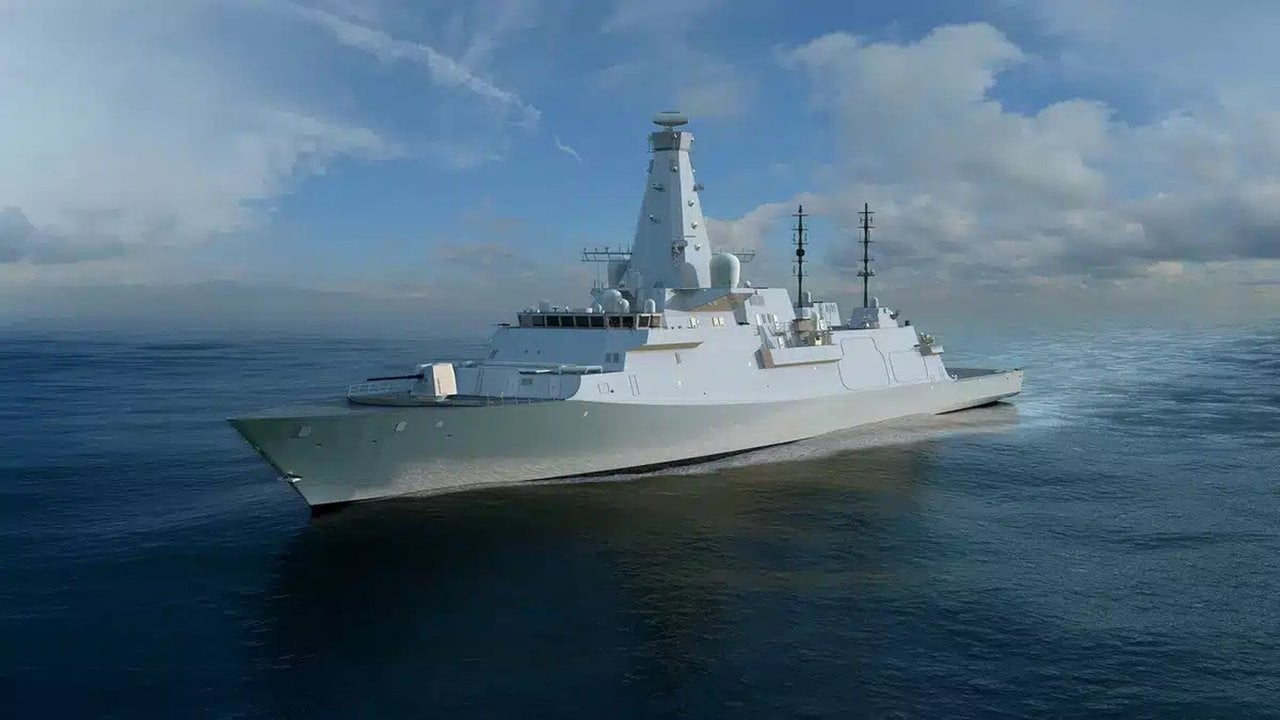The Norwegian Government has selected the United Kingdom as a strategic partner for the acquisition of new frigates. The purchase of British frigates will be the largest Norwegian defence capability investment to date.
Official translation will follow
‘Norway and the United Kingdom are close allies, with common interests and strong bilateral ties. I am confident that the strategic partnership with the UK for purchasing, developing and operating frigates is the right decision. This partnership enables Norway to reach the strategic objectives our Parliament set out in the current Long-Term Plan on Defence,’ said Prime Minister Jonas Gahr Støre.
In connection with the Norwegian defence pledge, the Parliament decided that Norway should select a strategic partner for the acquisition of new frigates, as quickly as possible. This is now being followed up by the Norwegian Government. The Storting has been consulted through the expanded Committee on Foreign Affairs and Defence. Delivery of the British Type-26 frigates to Norway will start in 2030.
‘Selecting the United Kingdom as a strategic partner for frigates was also recommended by the Chief of Defence. The choice represents a historic strengthening of the defence cooperation between our two countries,’ said Støre.
Since November last year, Norwegian authorities have considered France, Germany, USA and UK as a strategic partner on frigates.
‘It has been a difficult choice. The four candidates, France, Germany, USA and the UK, have provided strong and competitive proposals. They are all close allies, and I wish to express my appreciation for a constructive process and dialogue. All four allies are strategic partners for Norway. The extensive cooperation on security and defence policy will continue at full strength with all of them,’ said Støre.
A stronger strategic partnership
A long-term, strategic partnership on frigates requires deepened and strengthened cooperation in the time to come.
‘Together we will acquire frigates to the British Royal Navy and the Royal Norwegian Navy. We will operate and develop the frigates for the coming decades. This will strengthen our and NATO’s ability to patrol and protect the maritime areas in the High North. This is of great importance to Norwegian, British and allied security in these times of global instability,’ said Støre.
Norway and the United Kingdom have long lasting, close ties. After having operated British vessels during World War II, the post war navy was largely built on British doctrines, tactics and operational concepts.
‘We have strong shared interests in the North Atlantic. Our Armed Forces maintains a close cooperation, and with a joint frigate program, we will be able to operate seamlessly and integrated in our joint areas of interest,’ said Defence Minister Tore O. Sandvik.
Extensive industrial cooperation
The strategic partnership with the United Kingdom will be accompanied by extensive industrial cooperation. In the draft agreement the United Kingdom has guaranteed for industrial cooperation with Norwegian industry equivalent to the total value of the acquisition.
‘This is positive for Norwegian industry and Norwegian jobs. The industry will play a vital role especially in maintaining and keeping the vessels up to date. We have identified a wide range of industrial and technological areas of cooperation where Norwegian industry can compete for contracts,’ says Støre.
Ships for anti-submarine operations
The British Type 26 frigates are warships specifically designed to detect, track down and combat submarines. The Norwegian and British vessels will be as identical as possible, and have the same technical specifications.
‘Having identical vessels will enable us to operate even more efficiently together on challenging missions. It will also reduce costs and make joint maintenance easier. Additionally, it opens up the possibility for us to perform joint training of personnel, and perhaps even use Norwegian and British crew interchangeably. This is something we will look into further within the framework of the strategic partnership,’ said Sandvik.
The Norwegian frigates will be equipped with anti-submarine capable helicopters. A decision on what type of helicopter the Norwegian frigates will be operating has not yet been made.
‘The Norwegian frigates will be equipped with helicopters with anti-submarine capability. At the same time, it is important that we consider the rapid technological developments, and explore the possibilities for utilizing unmanned platforms. This is something we will look further into together with British partners,’ said Sandvik.
Separate government agreement
The Norwegian and British governments will soon finalize a binding agreement which sets the framework for the strategic partnership. Once the agreement is signed, the two parties will enter into contract negotiations with the main British supplier, BAE Systems.
In parallel, Norwegian and British authorities will negotiate separate industrial cooperation agreements for various collaborative projects with relevant industrial partners.
‘Our first goal is to finalize the Government agreement shortly. Then we will move into contract negotiations. We will negotiate, among other things, the price and delivery schedule for the vessels, before returning to the Parliament with an investment decision,’ said Sandvik.

